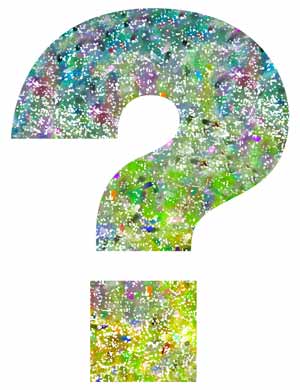Existential Concerns - Midlife Crisis, Existential Crisis Help, Existential Angst - Counselling London

Existential Crisis, Midlife Crisis Men & Women There is the text in Jaspers's "In Way To Wisdom", which addresses the limits of being human, certain truths which inevitably provokes anxiety on the lines of - "I must die, I must struggle, I'm subject to chance, I involve myself inexorably in guilt". We can experience these fundamental situations of our existence ultimate situations. We go through many transitions in our life. One of them could be called midlife crisis - a normal process as part of our maturation as an adult, in giving us the opportunity to discover more of ourselves, our purpose & motivate us to get the most from life. We may want to address a disconnect between who we've become and who we want to be. Sometimes external circumstances can trigger midlife crisis. We may take drastic action, make unrealistic transformations & attempts to cover up our midlife crisis and can experience a midlife crisis in many forms. We may have a career dilemma, work crisis, crisis about what is happening in the world. Re-examining our relationship, some may have a more personal, emotional crisis or experience a deep, existential sadness. We may also have a crisis in our relationship, question our sexuality or have started an affair. Some may be worried or alarmed about sickness, our body changing, ageing or thoughts of old age, maybe dying. And midlife crisis is not only about losing our youth (or our libido, reproductive life, energy, figure, our parents), there are often deeper concerns at play and something may be amiss, missing in our life we can't quite put our finger on. An existential crisis affects our physical, personal, social and spiritual lives, changing our relationships with others. It's a time when we question what we value, our entire existence, where everything we took for granted is unstable, unbalanced and we lose our bearing, seem in turmoil, insecure or fearful. These experiences challenge our established routines, patters, habits (especially our external sense of worth), life meaning. Some may have a sense of our life slipping by. We may be disappointed, frustrated, about missed opportunities, unmet goals, fear taking risks. Aware that time is running out, maybe not the person we thought we were or sensing life may be passing us by, we may have been living in a comfort zone, which no longer works for us, wanting to explore life in different, challenging ways. Questioning our role as a man or woman, some of these crises we are be experiencing may also point to a life crisis of an existential nature, what some people have termed as midlife crisis in men or women. (The menopause in women or so-called male menopause - andropause, has sometimes been linked to midlife crisis.) Tempted to sabotage things in our life, we may be questioning why we have this partner, these friends, this job, why care, the fundamental aspects of our existence, life meaning, purpose, limitation of our free will, our circumstances, choices (where procrastination may be an associated problem). We may want to address certain questions. "What's next?", "How do I navigate my way through life?" may be a questions we ask. What is given in our life? Can perfect happiness be attained? What is my authentic way of being? The narrative and story of our life may no longer make sense. Midlife crisis counselling, existential therapy can explore these further with you.
Stop the world, I want to get offIrving Heller
At a turning point, struggling in our personal or professional life we may feel deeply emotional, wondering where, how we belong, and this can be viewed as a wake-up call for us. We may feel insecure in what we are doing, how we are being, how to live. Painful though it may be at times, crisis can also be an opportunity for change. Little is guaranteed in life and we may fear the unknown. What we thought was important may no longer be, and it can be as if we are left in a vacuum, questioning what is there, when we are no longer getting drawn in or anxious about day to day events. We may begin to sense a bigger picture to life, yet unsure what this looks like. And questioning life's meaninglessness, crisis may also point us towards what really matters to us, our values, conscience, integrity & purpose. Aware of our Self and self-conscious (beyond our physical sense, personal traits and social roles) we may have a sense of being separate and distinct from others - our existential self - that we're born alone, we die alone, we're born, we live, we die, which can bring us up against existential crisis. Some may come to existential therapy having some sort of identity crisis, feel dissatisfied, disappointed, that despite our blood, sweat and tears, all we've built is not enough - not what we're here for, as if we are now on a quest for our authentic identity, closer to who we really are. How we perceive life, the meanings we make may no longer fit. Existential therapy can be a space to explore our emptiness, restlessness, midlife crisis, existential crisis further, what now makes our life satisfying. This may point to having different intentions, aspirations, in which a change of relationship, job may not be a "cure" and may be more about connecting to our own inner journey, direction, creating our own destiny and our Self.
Wherever I go, Whatever I do, Whoever I am with - Here 'I' am.
To know & live this 'I' - this 'me', this is my challenge. Whatever I am 'I' have to be.
Being Restless Yet Not Knowing Why We may feel empty or alone in the world, even when surrounded by people. We may feel lost, stuck, bored, hopeless, suffer from insomnia some of which may point to existential depression. Existential pain can be experienced when we are open, and others aren't. We can be successful, creative or be rewarded in some respects (maybe our relationships, work or business, where we may be a high achiever, at the top of our profession), yet unfulfilled at a deeper level or not quite know how we got here. No longer comfortable on our dependence to worldly things external to us, we can become despairing. For some our sense of worth may be based upon what we do & what we have, without valuing who we are and what we really feel. Rich in terms of wealth, some may feel impoverished inside, deeply unhappy, or alienated, as if our soul is restless. We could be very busy, rushing or chasing things - constantly distracted, yet life appreciation may be missing. We may have lost our focus or purpose. Our relationships may seem hollow. We may be stuck in a cycle of being trapped in a constant state of awareness of the passage of time, or the fact that however wonderful life can be, it has to end with death. Confronted by existential realities, the preciousness of our life may seem meaningless. We may have a sense of impermanence, which may mean experiencing everything and everywhere is in flux, always transforming, changing - whether it's our personal experience of happiness, our relationships, moments of connection and joy and life itself. We may cling on tightly to those we love, knowing that they and we will die. Others may sense life's incompleteness, that aside from brief moments when our life feels complete, these moments don't last and move on to somewhere else (with "What's next? Now what?" responses) in cyclical patterns, yet the cycle never feels complete, rendering us disillusioned again. (For we also know there are a finite number of summers, places to travel, people to see, books to read, films to watch.) We may ponder upon life cycles, loss & death, transformation & renewal. The existential therapy may therefore encourage us to view these experiences, not necessarily pointing to anything being wrong, yet more about embracing living with life's impermanence, incompleteness, where these very "symptoms" we are experiencing are a calling towards reconnection and renewal. Getting older can also bring us up against our own existential issues. Some may fear death or dying, or come up against our own mortality. What's preordained, our destiny & how this relates to our free will, may be troubling us, so we may be questioning not only what we may be calling for, but also what may be called of us (See also Living To Our Full Potential). There may be a physical void inside of us, a sense of existential emptiness and we may seek deeper meaning around this. In some sort of existential depression, we may long to create a new way of being and seeing in the world and now seek existential therapy. Some of our concerns may therefore be of an existential nature (what some people call existential uncertainty or existential insecurity) and these concerns may be connected to authentic core existential life feelings, simply by being human, of existential alienation, loneliness, heartache, heartbreak, vulnerability, sorrow, grief, helplessness concerning others and events (and any hurt, pain we feel) or grieving humanity, experiencing an universal sadness. And only when we allow ourself to feel these feelings, be in our loving adult can we embrace them, feel empowered, feel emotional freedom, live our truth.

Existential Issues - Something Missing Despite friends & family, at some point, men & women can experience the stark realisation that we are alone, yet free, compounded by the challenge of being authentic, which may provoke our unease & anxiety. We may be suffering inside from both the limitations & possibilities of the transitory nature of life. "How did I get here?", "Is this it?" we may wonder. "Why bother?", "Why am I here?" may be other concerns. This experience can trigger existential crisis. Some people call this existential angst or midlife crisis in men or women - what has simply been described as boredom. We can invest our time, energy & passion on external factors, entertainment or material things, yet we may have neglected our very core - our inner being. Most of us have experienced those lonely times, as if we are an outsider. Yet these experiences can also offer us the opportunity for looking inside ourself, reflecting on the world and us in it. Despite what we have in life, something can be missing for us, which we can't quite fathom. We may have a sense that our "old show" is over, struggling with a new phase of life, yet want to reclaim lost parts of ourself and find a meaningful way to life the next chapter in our life. Stuck with where we are in life, we may have regrets, wishing we had done more, or for what might have been, the life we could have led - that some things are too late through our lost years of consciousness. Mourning our losses, regrets may be important, so we can put our life in order now. And if we are still longing for some things we didn't receive in the past, this may indicate that we are not giving these to ourselves now (see also The Impact Of Our Past Affecting Us Now, Including Our Relationships). It can also dawn on us that there is more to life than what's happening to us at the moment. We may have less tangible, yet important "meaning of life" concerns, with little relevance to our past, intensely wondering what is this all about, or struggle to reconcile life's big questions, the transient nature of existence. And the crisis we experience may point us to deep life purpose, dilemmas. Alone or lonely inside, we may be at a crossroads, or turning point, in which old ways of responding no longer work, as we experience mid-life crisis or existential angst. Menopause can produce midlife crisis in women (and sometimes called male menopause, male midlife crisis in men).
Existential Crisis Counselling We may have a sense of falling apart, placing us on a deeper journey of self-disclosure, presence, living a more authentic, meaningful, purposeful life. The futility of the human condition, suffering, illness, death as we reflect upon our own mortality may occupy us. And unresolved issues from childhood may re-emerge as may unexpressed shame, guilt for not having lived the life we have aspired, "What was/is my life for?" "What am I doing with my life?" we may ask, alongside of "Who am I really, what do I really want?". We may be tired of living in the way we do.
I gets wearyPaul Robeson, "Old Man River"
Sick of trying
I'm tired of living
Feared of dying
But ol' man river
He's rolling along
Existential Guilt Along our existential journey we may experience existential guilt in not taking responsibility for our own life, struggling to become the person we have the capacity to become (see also Being & Doing - Dilemmas We May Hold).

Existential Anxiety Living in a world that is never certain, secure & not always predictable or known, can bring us up against existential anxiety & emotional swings of a different kind. We are presented with challenges in how to respond (become fearful or choose whether to think about or embrace this challenge) & understand the meaning of all this, which can impact upon the sense of our very existence. Being with others & inhabiting our body are existential givens, which can't be avoided. Existential anxiety can be seen as a human given - a daily struggle at some level, inevitable, unavoidable, universal in us all, normal - not to be "removed, resolved or cured". Our existential anxiety can be seen as our recognition that we are free with all its possibilities, yet limitations and have awareness of our inescapable death. We may have a sense of time running out. Our existential anxiety can also promote our growth, be instructive as we learn our response to it, addressing the paradoxical nature of our existence - the experience that we are, which precedes & runs deeper than what we are - our essence. What we are can be considered as the givens of our existence, which are not negotiable, like our genes, gender, race, culture, family background, even our name. Taking personal responsibility for our existential anxiety is anxiety-provoking in itself. We can come up against overlapping existential dilemmas, existential threat, through:
- Our physical experience, which relates to the material world that surrounds us, the changes in our body, health, with a dilemma of how we can fully live, when we or people we love could die any moment & will die at some point - the inevitability of death (see also Reflecting Upon Our Mortality)
- Our psychological aspects - about how we see ourselves, the impact of our past, our future possibilities, exploration of what's real. Our dilemma here may be about "how can I be me", free and vulnerable, responsible & powerful without knowing all the answers?
- Our social considerations. Our dilemma here may be what role other people have, how we can be both an individual, separate, yet part of the wider world, whole. We may also be questioning who am I without a role?
- Our global concerns for the planet - eco-anxiety, climate crisis
- Our spiritual realm. Our existential dilemma here may be responding to an external value system, and a more meaningful value system of our own. We may question how we should live.
We have only to follow the thread of the hero path.Joseph Campbell
And where we had thought to find an abomination,
we shall find a God.
And where we had thought to slay another,
we shall slay ourselves.
And where we had thought to travel outward,
we shall come to the center of our own existence.
And where we had thought to be alone,
we shall be with all the world.

Existential Despair, Existential Anger, Existential Depression We may be heartbroken, feel helpless inside, yet not know fully why our inner world may be dark (see also Inconsolable, Dark Night Of The Soul). The world can be cruel, unjust, where humans are not always humane and our existential depression may be our rational response to an irrational world, maybe linked to a loss of spiritual centre. We may be sad that nothing seems to matter any more. Our sadness may be of a universal nature and what we see happening in the world. We may be tearful and moved, yet not depressed. We may classify our despair only as a weakness, about being anxious, lost, stuck, maybe in a state of suspension, inertia. Some of these associated feelings connected to our despair can be worked through in the therapy. Yet our despondency, lostness may also be about coming to terms with something intangible. Despite our achievements, what we've acquired in life, our despair, existential depression can be as if we are unfulfilled from the depths of our soul. Inside we may feel restless, yet not know why. As if living in a cave of pointlessness, we may at times experience a sense of meaninglessness, yet a longing or yearning as we question "What am I doing?" or "What am I here for?", "Now what?", "What's real?". This uncomfortable or familiar despair (maybe manifesting as dissatisfaction, disappointment or cynicism) that we experience may also point to a sense of waste as we struggle to be all of who we are - our true worth, living as a free individual. Yet balancing competing dilemmas & expectations inside us & out there in the world, is not easy. Losing faith, we may be in existential despair, because we are not being the person who we truly are or want to be. And the more conscious we become of this, the more intense is our despair, as if we are experiencing some sort of existential depression, existential malaise. We may be holding on to existential nihilism, that nothing matters, life has no meaning or value, so loss or grief makes no difference. Strong on the outside, we may become defiant, very angry or choose to avoid our existential despair through pleasures, habits or addictions, yet it doesn't quite disappear. It is as if our sense of existence (that we are in this world) is evolving, transforming, which can be confusing. The experience of existential despair may not entirely be able to be taken away, yet acknowledging our despair can for some facilitate hope. Challenges may include learning to live more lightly with our existential despair, allowing, embracing, integrating what we ignore - our shadow, light and dark side. Further existential challenges may include: how to be internally strong - able to tolerate existential insecurity or uncertainty, to be able to allow this, surrendering to what is not in our control, unknowable, willing to be all of who we are, close to our true self. Existential psychotherapy & existential therapy can be a space to explore what else may be emerging through our despair, to mull over these important concerns, and also we get in touch with what we want, our commitment & values, how we want to evolve.
Is that what there is.Peggy Lee
The Absurdity Of Our Existence - Living With The Absurd Our sense of existence may be evolving, transforming, which can be confusing. We have a human tendency to seek value and meaning in our life, yet experience living in a purposeless, meaningless, irrational, chaotic world. What's the point of life we may ask and draw a conclusion that it is pointless to search for meaning, purpose, that we cannot escape the absurdity of being human in an ultimately meaningless universe, that the stories we tell can give us meaning, are just that - stories. (Albert Camus wrote of the absurd as the futility of the search for meaning in an incomprehensible universe, devoid of God or meaning, purported in his novels that human life is objectively speaking meaningless. He also wrote "In the midst of winter, I found there was, within me, an invincible summer."). As Robert Frost says: "Forgive, O Lord, my little jokes on thee. And I'll forgive Thy great big one on me." In a double bind, even though we may experience life as meaningless we don't have to become negatively nihilistic, we still have freedom and freedom to make our own meanings. Some of us may deny the existence of free will, yet still find happiness that doesn't involve our need for meaning, that we can be a compassionate human being, choose to hold hope, live with light-heartedness, playfulness, carefreeness, laughter, fun and our sense of humour, be internally strong, able to tolerate uncertainty, surrendering to what is not in our control, the unknown, be true to who we are, connected to our values and personal will in order to act. Martin Heidegger writes about profound boredom, "drifting here and there in the abysses of our existence like a muffling fog" and maybe bored or lost in an inner fog, we may also come up against not so much that life is meaningless, but be unable to grasp that there is too much meaning for us. Another lens to view the absurdity of life may be reflected in the T.S.Eliot quote "We shall not cease from exploration, and the end of all our exploring will be to arrive where we started and know the place for the first time".) (See also The Pain & Joy Of Life - Opening Our Heart To Heal Love)
You only are free when you realize you belong no place — you belong every place — no place at all.Maya Angelou

Existential Concerns - Our Direction We may be in genuine despair or existential depression, regret, have a sense of deep sorrow, grief or pain for both us & the world (see also Universal Sadness) and these experiences may be of an existential nature - what has been called existential anxiety. Some people report these emotions like a kind of lamenting, wailing of the soul. Mourning our losses, grieving over our lost past may be important for us. A cliche for some, yet very real for others, is the experience of midlife crisis or sense of everything passing by, as we seek a different or new purpose, direction, which is meaningful to us. Not really in the right place, we may want to change our life direction, or have our "old life" back, yet recognise things (and our body) won't be quite the same again. In spite of our achievements we may feel dissatisfied inside. "Now what?" we may ask. We may be searching for the secret of our life only to find there isn't one. We may be in touch with a suffering & love, which is beyond what's personal just to us and inescapable, pointing us towards a new direction. Whether to be authentic or inauthentic, moment by moment may be a further challenge as may choosing to be in touch with our desire and what brings us joy. These less tangible challenges can also be explored in existential therapy & existential psychotherapy. (See also Life's Journey, Initiations - Connecting To Our Own Inner Journey, Direction & Creating Our Own Destiny)
We are condemned to our own freedomJean-Paul Sartre

Existential Counselling, Existential Therapy Some of the stark feelings in life - the shadow side of life, sense of impotence, emptiness, loneliness, dissatisfaction, despair, disappointment, disillusionment, frustration, disconnection, alienation, pointlessness, loss, separation, anger or depression, may be of an existential nature - the very dilemmas of being human with its existential mysteries. We may be grieving for paths we didn't take, unfinished business. Experiencing existential loneliness, we may be in touch with our helplessness over others & external events, in the knowledge that we can't control them. We may let these feelings & existential concerns be bigger than us, losing our self in the process and we may experience crisis of identity or dark nights of the soul. We may be pondering what is left for us, what inspires us, moves us, gives us hope, keeps us going in difficult times? And if we tend to push ourselves, force ourselves in life, our existential dilemmas may point to a need for softer, yet powerful way of living. Letting go of something maybe a need for some, acknowledging the bits we can't change, for others. Something different at this phase of our life may be emerging, e.g. valuing companionship and connecting deeply with others, fully living our heart's values, engaging in our passions, discovering / rediscovering our creativity, engaging or re-engaging our vision, being in service of others. We may recognise our interdependence, interconnectedness, connecting to our peace of mind, stilling our mind, contentment, inner peace, calmness. We may want to explore how is it that we are alone, yet also connected & inseparable from others, the wider world. How we embrace our existential experiences, yet be free, grow, respond to the life we have and reduce our existential anxiety, may be challenging. Further challenges may be taking responsibility for our existential angst, experiencing it with dignity and existential courage, being present to it, not necessarily fully understanding it, alongside facing truth head-on, being in our own inner authority, facing our past and utilising its learning into our presence and future. We may not only experience depth of sorrow (existential depression), but also be in touch with something else stirring, may be revisiting a deep longing & yearning, need for compassion, and this too can be shared in the existential therapy alongside exploration of our own givens, freedom, limitations of being human, existence, contradictions, restrictions (including economic ones), death, the paradox of being, our life meaning, the choices we make. Acknowledging life's fragility we may want to re-engage with life's preciousness, do things that feel more like us, enjoy the simple things, connections, nature, find new purpose, make certain things better in our lives. And we may have existential dilemmas that we have the freedom to choose and have no choice but to make choices, only relying on ourself - not some external authority to decide for us. This may include honouring our inner authority, individuality, personal freedom, yet being part of a wider community as social beings. Beyond our achievements, we may ponder existential questions, more soulful matters and the therapy at this stage may also include rumination, or deep conversations together, about life, longing & its meaning, regret, loss and grief - maybe of our younger self (see Existential Grief), love (including those that we loved, meaningful relationships), alongside our values and our very existence, with its accompanying fragility and enjoying a simpler life. For some, we may be caught in our mind and have lost touch with certain elevated feelings, gratitude, for what life offers. "I am living my life for what?", "What do I want out of life now?" may be things we question, as well as "What really grabs me now?". We may have a "So what?" feeling. For others, being curious, questioning what our life means may nudge us towards our unfolding, awakening Self, our psychological future, expanding joy, growth, desire, spiritual enquiry, spiritual consciousness and we may also want to include our spiritual or religious world into our personal life. Others may want to reconnect to what it means to be part of the wider world, the universe, be strongly vulnerable. Another aspect of existential therapy may include exploring the sense of life being meaningless, absurd at times and that we are free and responsible in seeking, creating, our own meaning, which in itself can trigger feelings of meaninglessness. This may include revisiting our beliefs, the unspoken, our shadow, exploring things that are avoided, evaded and realisation, acceptance of all aspects of humanity. We may want to utilise the existential therapy to also identify fresh direction in our life. This may include viewing our existential feelings as also a call towards renewal and reconnection, reattachment to the totality of our life, continuity of life, based on our desires, values, what's really important to our life, with ways of being that have significance for us. This may entail fresh or renewed commitment (e.g. to our core relationships, our creative life, projects we are proud of, causes that are close to our heart, continuity through our descendants, ancestors, children, grandchildren, nephews, nieces - being loving to them, letting them know they are loved). These existential issues, our existential angst, existential crisis can be heard & reflected upon in the therapy as we also explore relatedness - being authentic, the power of surrender, understanding and making sense of ourself through our interactions with others, transforming the powerful energies, vitality and inner strength we experience into our capacity for love, wisdom and compassion, presence. The existential therapy may also include tapping into our own intuition, wisdom about life's meaning for no matter what our numerical age, the experience and realisation of ageing can bring a different dimension, meaning, into our life.
He who has a why to live can bear almost any how.Friedrich Nietzsche
Midlife Crisis, Existential Crisis, Existential Therapy, Existential Counselling Questions We may have questions about mid-life crisis, existential crisis, existential angst, e.g.:
- Often people talk of a male midlife crisis, is there a difference between midlife crisis in men and midlife crisis in women?
- What are midlife crisis symptoms?
- What is an existential crisis and can existential psychotherapy, existential counselling help?
- Are existential problems, existential issues the same for everyone?
- Does existential therapy cure existential angst?
FAQs about the midlife crisis, existential Counselling London practice based in Kings Cross, Camden:
- What is the frequency of midlife crisis, existential counselling in London, Kings Cross?
- How many midlife crisis, existential counselling in London sessions do I need?
- How much does midlife crisis, existential counselling London cost?
- Must I visit your London counselling for midlife crisis, existential in Camden or do you offer Skype counselling, online counselling or Telephone counselling?
- What are the advantages and disadvantages of offering online counselling, Skype counselling or in-person counselling in London, Camden, Kings Cross
- Do you only offer midlife crisis, existential counselling in London, Camden or Kings Cross?
- What times do you offer midlife crisis, existential counselling in London, Kings Cross or Camden?
- How do I contact a counsellor in London, Camden, or near Kings Cross?
- How effective is midlife crisis, existential counselling in London, Kings Cross, Camden?
- What can I expect from the initial session of midlife crisis, existential counselling London?
- Is existential psychotherapy or existential psychology effective?
- What to expect from the other midlife crisis, existential counselling London sessions?
- What is the typical duration of the London counselling for midlife crisis, existential in Camden, Kings Cross
- What is midlife crisis psychology?
- How does midlife crisis psychology help?
- Do you offer existential help?
- How can existential therapist help
- As an existential therapist, how many existential therapy sessions do you advise?
